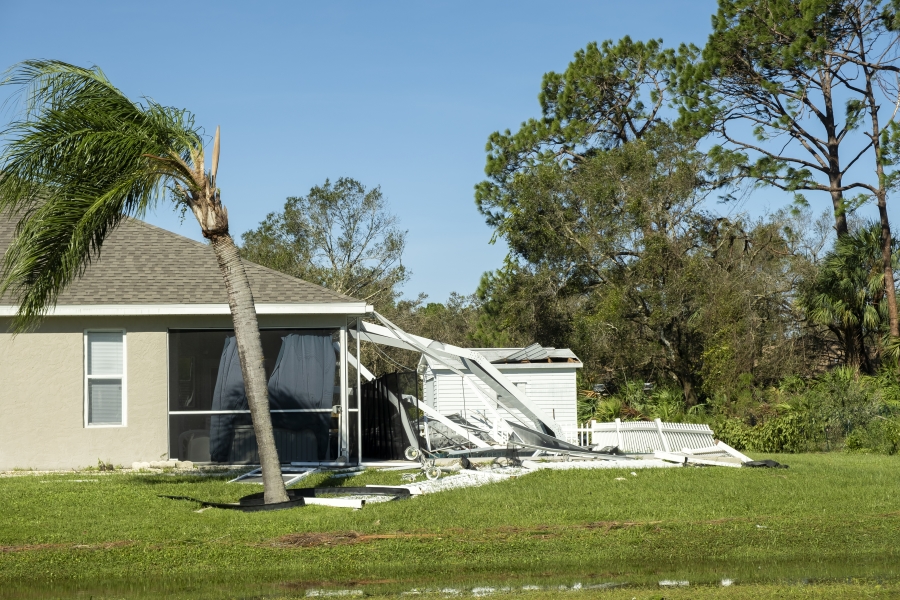Hurricanes leave a trail of destruction, and for homeowners, recovery often depends on receiving a fair insurance payout. But what happens when your insurance company underpays? Many homeowners face this problem. After paying premiums for years, they are left frustrated and unsure of what to do.
Unfortunately, this is a common issue. Insurance companies often prioritize their bottom line, which hurts the homeowners they are supposed to protect. However, you don’t have to accept their first offer. By taking the right steps, you can fight for a fair payment and secure the money you need to rebuild.
At Strickland & Kendall, we’ve helped homeowners navigate the complex process of disputing underpaid claims. Here’s how you can protect your rights and take control.
Why Do Insurance Companies Underpay Hurricane Claims?
Insurance companies often try to save money by paying less than they should. They use common tactics to reduce payouts.
Common Tactics Used by Insurers
- Lowball Repair Estimates:
Insurers often undervalue the cost of repairs. For example, they may calculate roof repair costs using cheap materials instead of the type your home needs. - Disputing Coverage or Policy Exclusions:
Insurance companies may argue that certain damages aren’t covered by your policy, even if they clearly resulted from the hurricane. - Claiming Insufficient Documentation:
Insurers may claim your evidence doesn’t support your claim. They can try to shift the burden onto you to prove the extent of the damages.
The Impact of Underpaid Claims
- Financial Stress:
If your claim is underpaid, you might have to use savings or borrow money to cover repair costs. - Delayed or Incomplete Repairs:
Without enough funds, you might need to delay or scale back repairs, which could cause more damage over time.
Luckily, there are steps you can take to challenge an underpaid claim and seek fair compensation.
Steps to Take When Your Claim Is Underpaid
If your insurance company underpays, don’t give up. Following these steps can help you build a stronger case and increase your chances of a fair settlement.
Review Your Insurance Policy
Start by carefully reviewing the terms of your policy. Key areas to focus on include:
- Coverage Limits: Are you being paid less than the policy allows?
- Exclusions: Look for clauses that the insurer might be citing to justify a reduced payment.
- Deductibles: Was the right deductible amount applied?
If there are discrepancies between your policy’s terms and the payout, you will be able to effectively dispute their decision.
Document All Damages and Costs
Clear and thorough documentation is crucial when challenging an underpaid claim. Make sure to:
- Take Photos and Videos: Record all the damage inside and outside your home. Don’t forget about areas like attics and basements.
- Obtain Independent Repair Estimates: Ask local contractors to provide repair quotes.
- Keep Receipts: Keep receipts of temporary repairs, alternative lodging, and other hurricane-related expenses.
Clear evidence makes your claim even stronger and more difficult for your insurer to deny payment.
Challenge the Settlement
Once you’ve reviewed your policy and gathered evidence, submit your dispute with the insurer. Here’s how:
- Additional Evidence: Provide the insurer with photos, estimates, and receipts to support your case.
- Ask For a Written Explanation: Ask the insurance company to clarify why the claim was underpaid.
- Maintain Communication Records: Keep a log of all emails, phone calls, and any other lines of communication.
When to Seek Professional Help
If it becomes too much to handle this on your own, it may be time to seek professional help. Public adjusters and hurricane damage attorneys offer valuable expertise to help you navigate the dispute process.
Public Adjusters: The First Line of Advocacy
Public adjusters are licensed professionals who can:
- Negotiate on Your Behalf: They deal with the insurer so you don’t have to.
- Provide Independent Assessments: They evaluate damages to challenge the insurer’s low estimate.
Public adjusters advocate for policyholders, their influence is limited if the insurer refuses to act in good faith.
Hurricane Damage Attorneys: Fighting for Fair Compensation
When negotiations stall, a hurricane damage attorney can bring the expertise and legal authority to fight for what you’re owed:
- Holding Insurers Accountable: They know the law and make sure insurers follow it.
- Securing Fair Settlements: If necessary, they can file lawsuits to recover the full compensation you deserve.
- Delivering Results: At Strickland & Kendall, we can help you get far more than insurers’ initial offers.
Hiring an attorney relieves stress and increases your chances of a successful outcome.
Why Time Matters
Acting timely is important when disputing an underpaid claim. Delaying action can have serious consequences:
- Policy Deadlines: Most insurance policies include strict timeframes for filing disputes. Most policies and state laws have time limits for filing disputes or lawsuits.
- Damage Progression: Delaying repairs can worsen structural issues, increasing repair costs and complicating your claim.
The sooner you take action, the better your chances of resolving the issue.
Receive Your Fair Payout
Dealing with an underpaid hurricane damage claim can feel overwhelming, but you don’t have to navigate it alone. If your insurer refuses to pay fairly, professional help can make all the difference. At Strickland & Kendal, we have the experience to fight for your rights and secure the payment you need to rebuild.
Don’t wait to take action. Contact Strickland & Kendall today for a free consultation and let us handle the complexities while you focus on rebuilding your home and your life.Visit our Disaster Claims page or call us at (800) 874-3528 to schedule your consultation today.
